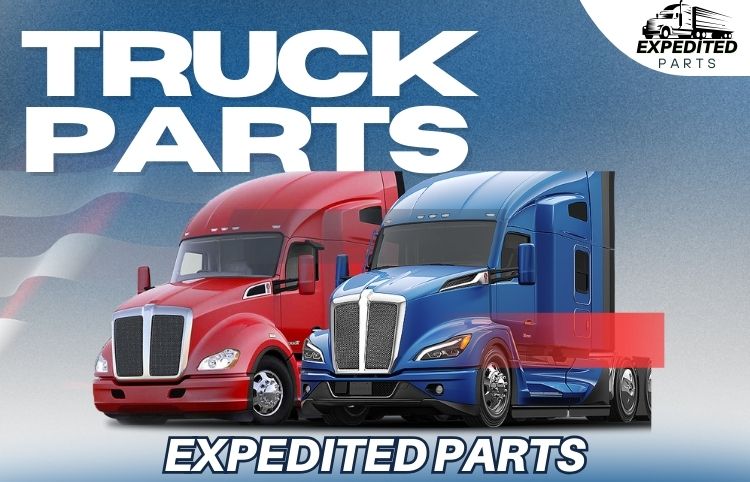Looking for reliable truck dryers and spare parts? Look no further! We offer top-quality products to keep your trucks in top shape. Visit our website today!”
Truck dryers and spare parts play a crucial role in maintaining the efficiency and longevity of commercial vehicles. As trucks are exposed to various weather conditions and road debris, it becomes essential to have reliable dryers that can remove moisture and prevent corrosion. These dryers not only ensure the safety of the truck’s braking system but also enhance overall performance. Moreover, having access to high-quality spare parts is vital for timely repairs and maintenance, minimizing downtime and maximizing productivity. Whether it is air dryers, filters, valves, or any other component, truck dryers and spare parts are indispensable in keeping trucks running smoothly and ensuring the safety of drivers and cargo.
The Ultimate Guide to Truck Dryers: Everything You Need to Know
In this comprehensive guide, we will cover everything you need to know about truck dryers. Whether you are a professional truck driver or a truck owner looking to keep your vehicle in top condition, understanding truck dryers and their benefits is essential.
1. What is a truck dryer?
2. Why is a truck dryer important?
3. Types of truck dryers:
There are several types of truck dryers available in the market, including:
– Fan-powered dryers: These dryers use powerful fans to circulate air throughout the truck, effectively drying the interior.
– Desiccant dryers: Desiccant dryers use a moisture-absorbing material, such as silica gel, to trap and remove moisture from the truck’s air.
4. Benefits of using a truck dryer:
– Prevents rust and corrosion: By eliminating moisture, a truck dryer helps to protect the metal surfaces of the truck from rust and corrosion.
– Reduces odors and mold growth: Damp environments can lead to the growth of mold and mildew, resulting in unpleasant odors. A truck dryer helps to prevent this by keeping the interior dry.
How to Choose the Right Truck Dryer for Your Vehicle
1. Determine your specific needs:
– Assess the size of your truck: Consider the interior dimensions to determine the appropriate size of the truck dryer.
– Identify your usage requirements: Evaluate how frequently you will be using the truck dryer and whether you’ll need it for long-haul trips or short-distance travels.
2. Research different types of truck dryers:
– Fan-powered dryers: Ideal for general moisture removal and air circulation.
– Dehumidifying dryers: Best for areas with high humidity levels.
3. Consider the power source:
4. Evaluate installation requirements:
– Portable vs. permanent installation: Decide whether you prefer a portable truck dryer that can be easily moved between vehicles or a permanent installation that stays in one truck.
5. Read customer reviews and ratings:
– Check online reviews and ratings to gain insights into the performance and reliability of different truck dryers. Look for reputable brands with positive customer feedback.
6. Set a budget:
– Determine your budget range and consider the long-term benefits of investing in a high-quality truck dryer. Remember, a reliable truck dryer can help prevent costly repairs in the future.
7. Purchase from a reputable supplier:
– Choose a reputable supplier or manufacturer that offers warranties, customer support, and reliable after-sales service.
By following these steps, you can confidently select the right truck dryer that meets your specific needs and ensures optimal performance for your vehicle.
Top 10 Must-Have Spare Parts for Truck Dryers
- 1. Heating Elements: These are responsible for generating heat in the dryer and may need replacement over time.
- 2. Belts: Belts are crucial components that drive the drum or blower in the dryer and may wear out due to constant use.
- 3. Thermostats: Thermostats regulate the temperature inside the dryer and may malfunction, requiring replacement.
- 4. Drum Rollers: Drum rollers support the drum’s movement and may get damaged or worn out, causing uneven drying.
- 5. Igniters: Igniters are necessary for starting the drying process and may need replacement if they fail to ignite the dryer.
- 6. Motors: Motors power the drum, blower, and other components in the dryer and may require replacement if they become faulty.
- 7. Control Boards: Control boards are responsible for regulating various functions of the dryer and may need replacement in case of electrical failures.
- 8. Door Switches: Door switches ensure the dryer operates only when the door is securely closed and may need replacement if they malfunction.
- 9. Filters: Filters trap lint and debris to prevent blockages in the dryer’s airflow and may require regular replacement.
- 10. Drive Pulleys: Drive pulleys transmit power between different dryer components and may need replacement if they become damaged or worn out.
By having these spare parts on hand, you can quickly address any issues that may arise with your truck dryer, minimizing downtime and ensuring uninterrupted performance. It is advisable to consult the manufacturer’s guidelines and seek professional assistance when replacing these parts to ensure proper installation and optimal functionality of your truck dryer.
The Importance of Regular Maintenance for Truck Dryers
- 1. Optimal Performance: Regular maintenance ensures that all components of the truck dryer are in good working condition, resulting in efficient drying processes and consistent performance.
- 2. Energy Efficiency: Properly maintained truck dryers operate at their optimal energy efficiency levels, helping to reduce energy consumption and lowering operational costs.
- 4. Safety Assurance: Truck dryers operate at high temperatures and deal with potentially hazardous materials. Regular maintenance helps ensure that all safety mechanisms, such as temperature sensors and emergency shut-off switches, are functioning correctly, reducing the risk of accidents or fires.
- 6. Compliance with Regulations: In certain industries, such as food processing or pharmaceuticals, truck dryers must comply with strict regulations and standards. Regular maintenance ensures that the dryer meets all necessary requirements, enabling businesses to continue operating legally.
1. Clean and maintain regularly: Regularly clean the filters, vents, and nozzles of your truck dryers to ensure optimal airflow. If these components are clogged or dirty, it can reduce the efficiency of the dryer.
4. Optimize drying time: Avoid unnecessary drying time by only running the truck dryer for the required duration. Leaving the dryer running for longer periods can waste energy and prolong the drying process.
5. Use appropriate drying attachments: Some truck dryers come with specific attachments designed for different parts of the truck. Utilize these attachments to ensure efficient drying of various surfaces and crevices.
6. Regular maintenance: Schedule routine maintenance for your truck dryers, including checking for any wear and tear, and replacing or repairing any damaged parts. Regular maintenance can help prevent issues and optimize the efficiency of your dryers.
Remember, efficient use of truck dryers not only saves time and resources but also helps maintain the overall appearance and condition of your truck.
Common Issues and Troubleshooting Tips for Truck Dryers
While truck dryers are designed to provide efficient drying, they may occasionally encounter issues. Here are some common problems and troubleshooting tips for truck dryers:
1. Insufficient airflow: If you notice reduced airflow from your truck dryer, check for any blockages in the filters, vents, or nozzles. Clean or replace clogged components to restore proper airflow.
2. Inconsistent temperature: If the temperature from your truck dryer fluctuates or remains inconsistent, it may indicate a faulty thermostat. Consider getting the thermostat calibrated or replaced to ensure accurate temperature control.
5. Uneven drying: If certain parts of the truck are consistently left damp or wet, check for misaligned nozzles or damaged attachments. Adjust or replace the attachments to ensure uniform drying across all surfaces.
Remember, if you encounter persistent issues with your truck dryer that you’re unable to troubleshoot, it’s best to consult a professional technician for further assistance.
The Future of Truck Dryers: Innovations and Trends
Here are some of the key innovations and trends shaping the future of truck dryers:
- 2. Automation and smart systems: Automation is revolutionizing numerous industries, and truck drying is no different. The future of truck dryers may include automated systems that monitor and adjust drying parameters in real-time, optimizing drying efficiency. These intelligent systems can automatically detect moisture levels, adjust drying times, and even communicate with other parts of the supply chain to ensure seamless and efficient operations.
- 3. Improved drying techniques: As technology progresses, so do drying techniques. Future truck dryers may incorporate advanced methods such as infrared drying or microwave drying, providing faster and more uniform drying results. These innovative techniques offer benefits such as reduced drying time, improved product quality, and energy savings.
- 4. Integration with IoT and data analytics: The Internet of Things (IoT) has revolutionized how industries collect and analyze data. In the future, truck dryers may be integrated with IoT devices, enabling real-time data monitoring and analysis. This data can provide valuable insights into drying process optimization, predictive maintenance, and energy consumption patterns.
- 5. Sustainable and eco-friendly solutions: With the increasing emphasis on sustainability, future truck dryers are likely to incorporate eco-friendly features. This may include using renewable energy sources such as solar or wind power, implementing water recycling systems, and utilizing environmentally friendly drying agents. These sustainable solutions not only reduce the carbon footprint but also align with the growing demand for environmentally conscious practices.
Spare Parts 101: Understanding the Essentials for Truck Dryers
When it comes to truck dryers, understanding the essentials of spare parts is crucial. These spare parts play a vital role in the functioning and maintenance of truck dryers, ensuring their efficient operation and durability.
In order to properly understand truck dryer spare parts, it’s important to familiarize yourself with the different components involved. Here’s a breakdown of the essential spare parts for truck dryers:
- Filters: Filters are designed to remove impurities and contaminants from the air circulated by the truck dryer. Regularly replacing filters is essential to maintain proper air quality and prevent damage to the dryer.
- Heating Elements: Heating elements are responsible for raising the temperature of the air passing through the truck dryer. These elements can wear out over time and may require replacement to ensure effective drying performance.
- Solenoid Valves: Solenoid valves control the flow of compressed air through the truck dryer. These valves are essential for the proper functioning of the dryer and need to be in good working condition.
- Pressure Regulators: Pressure regulators help maintain the desired air pressure within the truck dryer. Faulty or worn-out regulators can lead to inconsistent drying performance and may cause damage to the dryer.
It is important to source spare parts from reliable suppliers who offer genuine components specifically designed for truck dryers. Regular inspection, maintenance, and timely replacement of these essential spare parts will contribute to the longevity and optimal performance of your truck dryer.
Here are some key tips for maintaining and caring for your truck dryer:
- Inspect and Replace Filters: Filters play a crucial role in maintaining proper air quality within the truck dryer. Regularly inspect and replace filters as recommended by the manufacturer to prevent airflow restrictions and ensure optimal performance.
- Check for Leaks: Inspect all connections and fittings for potential air leaks. Leaks can lead to decreased performance and increased energy consumption. If any leaks are detected, promptly repair or replace the affected components.
- Follow Manufacturer’s Maintenance Guidelines: Each truck dryer may have specific maintenance requirements outlined by the manufacturer. Refer to the user manual or consult the manufacturer for recommended maintenance procedures such as lubrication, inspection intervals, and component replacements.
For detailed information, you can contact us: Torque


